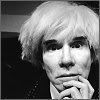I believed that memory envy was something that the author themselves believed to be true, but it isn't. If I believe that I fell down a flight of stairs and broke all the bones in my right hand due to my cousin "accidentally" pushing me, then to me, that is the truth. Of course, my cousin could refute such statements in a court of law when I sue for assault, but since this is my memory as I believed it to have happened, it’s true to me.
Binjamin Wilkomirski in his novel, Fragments, believed that he was a child of the Holocaust. He fully believed that he lived through the horrors and was directly affected by such events. Is he a liar? Well…no. Not really.
He didn’t purposely tell lies in his memoir – he believed what he wrote. His memory instead played tricks on him to the point that it made him believe that he went through events that he never did.
Everyone has memories. Everyone remembers things differently from others. If you have a group of people watch a robbery, surely you’ll get many different reports of what happened and how the robber looked like. Hell, even when 9/11 happened, you had reports of people stating that it was a helicopter or a small plane that crashed into the North Tower of the World Trade Center when in fact it was a Boeing 767 – a huge plane that should not have been mistaken for such small aircrafts.
The memory is such a tricky place, but can one be held accountable for things they thought was true, but in the end, found that it wasn’t? I myself, will say no – but how can you prove that the person wasn’t just lying and fell back on that defense: “I believed it to happen.” How can you really know the truth?
Subscribe to:
Post Comments (Atom)

No comments:
Post a Comment